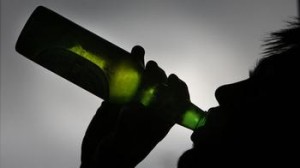In the June 16, 2003 issue of Time (page 73) an article appeared under the heading “Summertime booze”. A study from the Buffalo University showed that women, in particular, have to be conscious that drinking 3 or 4 drinks at one time on the weekend is not the same as drinking the same 3 to 4 drinks over the course of one week.
A study looking at the frequency of breast cancer in relation to drinking patterns found that the binge drinking women had a 80% higher breast cancer risk than the controls who drank 3 to 4 drinks at a time (but only one drink per day). Jo Freudenheim, the epidemiologist involved in this study, suggested that perhaps with the binge drinking alcohol’s toxic potential for breast cancer cells had been reached whereas with one drink at a time over one week this level was never encountered.
In another study from the Buffalo University liver toxicity as a result of alcohol exposure was examined. These researchers used blood tests to measure liver enzymes, which were leaking from the liver cells as a result of the toxic effect of alcohol. Both men and women were tested and various drinking patterns were also studied. Men who drink several drinks daily had the highest liver enzyme counts (reflecting the toxic effect of alcohol on the liver). However, women who drink only on weekends had even higher counts of the liver enzymes than men! Women who drank on an empty stomach had much higher liver enzymes in these studies than men where this effect did not show (with men it did not matter whether they drank with food or on an empty stomach).
The researchers concluded that binge drinking appears to affect women more than men. Generally speaking the higher the amount of alcohol consumed, the more toxic the effects on body cells and on the liver. Moderation may be in order.
Comments: These type of studies are particularly important in view of the fact of marketing techniques of the wine industry. Wine and alcoholic beverages are being portrayed as being a good source of bioflavonoids that are lowering cholesterol and would prevent or postpone heart attacks. Some of the data on cancer indicates that for ovarian cancer and colorectal cancer there may not be a safe low dose as even one drink per day can have a measurable effect on cancer risk. On the other hand, bioflavonoids are abundantly present in raw vegetables and fruit, so there is no panic about not getting enough heart attack preventing foods. Finally, a bit of common sense does not harm: alcohol is a cell toxin, so it should be diluted (nothing stronger than wine) and if you desire a drink, use it in moderation.
Link to chapter on alcoholism in Net Health Book:
http://nethealthbook.com/drug-addiction/alcoholism/
Last edited October 26, 2014






